Producers Kate Ogborn and Lisa Marie Russo joined forces in 2009 to form their production company Fly Films. They chat to Screen about their upcoming projects, their passion for artists and the benefits of working in a pair.
Both successful producers in their own rights, Kate Ogborn and Lisa Marie Russo set up their production company Fly Films in 2009, going straight into production (with Samm Haillay’s Third Films) on artist Gillian Wearing’s first feature Self Made which screened at the LFF and SXSW. It is being released by Manchester-based independent cinema Cornerhouse as part of their move into distribution in the UK, on Sept 2.
Previously, Ogborn worked at the BFI, EM Media and The Bureau where her producer credits have included Samantha Morton’s The Unloved and Shane Meadows’ This Is England. Originally from a documentary background, Russo’s credits include Terence Davies’ Of Time And The City as part of Liverpool’s Digital Departures scheme, and Brothers Of The Head with Ogborn.
Fly has just completed it’s second feature, Terence Davies’ The Deep Blue Sea starring Rachel Weisz which will have its world premiere at the upcoming Toronto Film Festival as well as screening in competition at San Sebastian and also closing the BFI London Film Festival. Ogborn produced with Sean O’Connor, Camberwell Productions, with Russo executive producing. It is due to be released by Artificial Eye in the UK on Nov 25.
Next up is another artist based feature, Swandown, a collaboration between artist film-maker Andrew Kotting and writer Ian Sinclair. Kotting made the 1997 documentary Gallavant in which he toured the country in a campervan with his grandmother and daughter. His latest film, This Our Still Life is screening in this year’s Venice Film Festival in the Orizzonti section.
Swandown is being financed by Britdoc, BFI , Channel 4 and the festival Abandon Normal Devices. It will also be distributed in the UK by Cornerhouse. Shooting is due to begin on Sept 18, with a budget of under £500,000.
Ogborn is also developing a second feature project with Samantha Morton and the pair will co-produce Ken Loach’s archive documentary, The Spirit of 1945, with Sixteen Films.
How did you get involved with The Deep Blue Sea?
Lisa Marie Russo: I executive produced the low budget scheme Digital Departures in Liverpool through which we made three low budget films to celebrate the capital of culture, one of which was Terence’s Of Time And The City..
Kate Ogborn: And I knew Terence from the BFI and so when Sean O’Connor sent me the script I read it immediately and was very keen to be involved. It was such a perfect marriage of director with material.
How do you manage the projects you work on?
LMR: On Self Made I produced and Kate executive produced. There will be lots of things were we both produce together. It’s just responding to the needs of the projects and whatever partnerships we are in.
One of the great benefits of being in a partnership is that we can develop a slate and move things forward, because we have a support network and make decisions together. So while one of us might have our head down in production, the other can be looking at what contacts we need to be making or what festivals and markets we should be attending.
KO: Given the way financing comes together, and we’ve done films across a wide range of scales and partners, in such a short time, you really need the back up of being able to hand over certain aspects of it. It works well, because it means we can keep other projects ticking over and it means we are not dedicated to the one film.
Tell us about Swandown…
LMR: Andrew Kotting and the writer Ian Sinclair are taking a Swan pedalo from Hastings to Hackney on the inland waterways. It really began as an art project, with the two of them going to different venues and talking about it. They did the walk and filmed it and made postcards.
It’s an exploration of the landscape, a piece of data art with links to culture and the Olympics. Ian is very vocal about the Olympics, about the money that is going into it, and whether it is really benefitting the local community. He loves a debate about it.
They liked the mythological and literal references to swans. They found when they started exploring that that lots of people would come to them with Swan stories. There is also a local artist who has a haven she has created with Swans that she has made. So it’s a kind of riff on that.
We will have invited guests into the swan. Some artists, comedians, academics, his daughter Eden, who is disabled and is an artist in her own right. It’s about her experiences as well. And I will go around in a campervan with a crew from campsite to campsite.
On paper, it sounds like quite a niche, offbeat film. Was it difficult to finance?
LMR: Not really. It has a commonality with Gallavant in terms of its humour. The BFI responded to that and wanted to support him visiting that side of his artistic brain. So we developed it with the BFI.
KO: I think it’s pitched right and it was a similar experience to The Deep Blue Sea. It was the combination of a film-maker they really admired who they wanted to work with, with the right project at the right time with the right budget level.
Both Self Made and Swandown are being distributed by Manchester exhibitor Cornerhouse in the UK.
KO: What’s great about the relationship with Cornerhouse is that it’s a relationship with an exhibitor. I’m really enjoying working with Artificial Eye on Deep Blue Sea, but it’s also important to build relationships directly with the exhibitors with these kind of projects, that are a challenge for distributors. They don’t make sense for them financially, but for Cornerhouse and those kind of exhibitors they absolutely do make sense.
Swandown is your second collaboration with an artist film-maker. Are these the kind of projects you are drawn to?
KO: I think it’s more about originality and a distinctiveness of vision. Artists absolutely have that and it’s fascinating to work with an artist like Gillian within a feature film mould. And then to work with an artist filmmaker like Andrew who effortlessly moves between film-making and gallery based work. It’s about being attracted to those original thinkers and people who are really exploring film and what they want it to say. Gillian’s was a really good model in terms of financing and how to work with artists.
LMR: We see ourselves as really being there as support to people and their creative vision. We have a varied slate of documentaries, social issue docs, narrative films in different genres. That is just a reflection of us. We are talent driven, driven by ideas and something new and unexpected. I think we both feel strongly that we take on projects when we feel we have something to offer the talent as well…
KO: That is why we got involved with The Deep Blue Sea. Joining Sean to produce the film with him, I really felt like I could help Terence and Sean to make it happen and to set it up with the right partners.
Kate, you produced Samantha Morton’s The Unloved. Any plans to work with her again?
KO: I’d like to work with Sam again. We have a feature project at early stages for her to direct, which is very different from The Unloved. It’s a book she is interested in adapting with very interesting central characters. She has got a great directorial eye.
We were actually keen, but it wasn’t the right timing for Channel 4, to do a series of The Unloved, following the other children. In the context of what’s going on on the streets of London at the moment it would be interesting to be telling those disenfranchised and dispossessed stories.
Any plans to diversify?
LMR: We would like to do more TV. Long form powerful signature pieces. I did a TV film with Sally Hawkins which was a brilliant experience. We have more projects in development with Marc Munden [Russo’s husband and director of the recent The Crimson Petal and The White]. The financing is less complicated than in features which means you the producer gets to spend more time being creative and you know it will be seen.
KO: What was great about The Unloved was that it absolutely reached the audience it was meant to and that was because it was made for TV in the UK.There is such amazing TV being done here and the States. But you need to keep your hand in. My experience of running the slate at Revolution or a couple of years..unless you are having those conversations on a regular basis with commissioners you are not going to stay in touch with what they are looking for. That changes month by month. It’s a faster moving world than film.
Is it a tough climate to be running your own production company?
KO: Tell me when it was easy in the British film industry?
LMR: Because we both come from an indie low budget background we are very happy to call on that skills base to help propel us forward. We don’t have big overheads. All those things are very conscious decisions. It’s only now that we have taken on someone to help us [Emma Greaves, formerly of The Bureau, has come onboard as a development executive]. It’s trying to be realistic and keeping a tight machine and building strong relationships, like with Film4, the BFI and Britdoc.
KO: I’ve worked with Protagonist on two films, The Unloved and Deep Blue Sea so would love to do more with them. It’s about keeping conversations going with them about the kinds of projects that work for them.
LMR: We love cinema. When we go to Cannes we are there at the 8am screenings. We are keen to keep up our own knowledge base and reminding ourselves of our own pleasure in films.


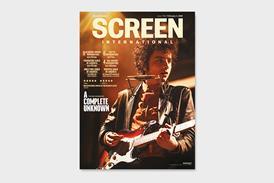
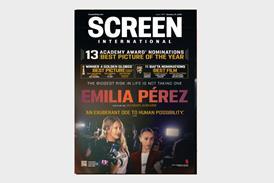
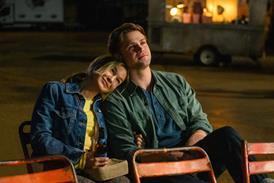
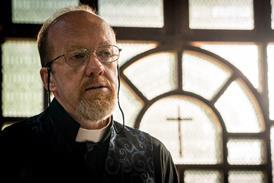
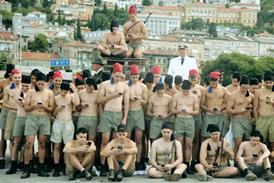
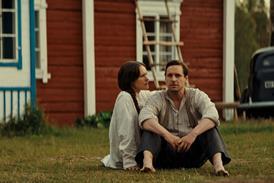




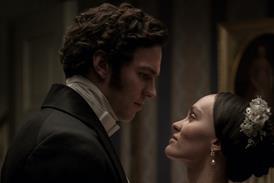
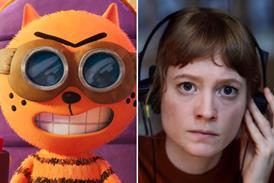
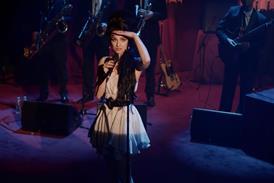
![[L-R clockwise] 'Anora', 'A Complete Unknown', 'Conclave', 'The Apprentice'](https://d1nslcd7m2225b.cloudfront.net/Pictures/274x183/6/5/3/1442653_casting_918941.jpg)

!["Within two weeks [of moving to Northern Ireland] I met Kneecap, the biggest caners in Belfast," says Peppiatt](https://d1nslcd7m2225b.cloudfront.net/Pictures/274x183/5/3/9/1442539_kneecap1creditpeadarogoill_298103.jpg)




1 Readers' comment